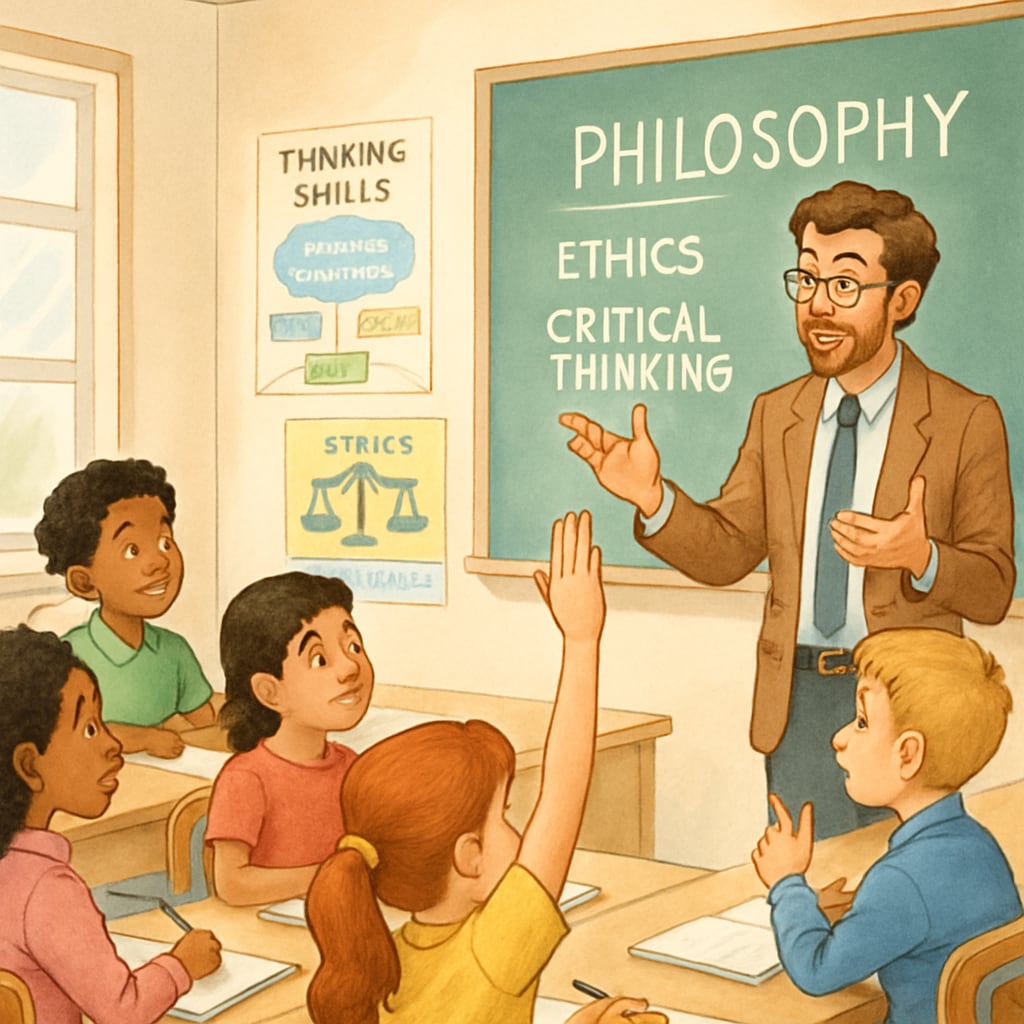Volunteer philosophy teachers are being invited to participate in a groundbreaking social experiment aimed at integrating philosophical thinking into K12 education. This initiative seeks to reshape how young minds develop critical thinking and problem-solving skills. By incorporating philosophy into the curriculum, we hope to create a more intellectually curious and reflective generation. If you’re a philosophy teacher eager to contribute to a transformative educational model, this experiment could be your chance to make a difference.
Why Philosophy Matters in K12 Education
Philosophy has traditionally been seen as a subject reserved for higher education. However, its core principles—critical thinking, logical reasoning, and ethical inquiry—are essential at every stage of learning. Introducing philosophy in K12 education can help students develop the ability to question, analyze, and think independently.
For example, studies have shown that early exposure to philosophical discussions improves children’s cognitive and emotional skills. Programs like Philosophy for Children (P4C) have demonstrated remarkable success in enhancing students’ reasoning abilities and empathy. Such outcomes align with the goals of this social experiment: to create a curriculum where young learners can explore meaningful questions about life, values, and ethics.

How Volunteer Philosophy Teachers Can Lead Change
The role of volunteer philosophy teachers in this experiment is pivotal. They will be tasked with designing and implementing structured yet flexible modules that encourage students to think deeply about various topics. These might include ethical dilemmas, the nature of reality, or even the concept of happiness.
The experiment will take place in selected schools, where teachers will collaborate with educators from other disciplines. This interdisciplinary approach ensures that philosophical concepts are integrated seamlessly into subjects like history, literature, and even science. As a result, students will see the relevance of philosophy in their everyday lives.
We are looking for volunteers who are not only passionate about philosophy but also skilled at making complex ideas accessible to young learners. If you have experience in teaching or academic research, your expertise will be invaluable in shaping this innovative program.

The Broader Impact of This Social Experiment
This initiative is not just about enriching individual classrooms; it’s about creating a ripple effect in education systems worldwide. By showcasing the benefits of philosophical thinking in K12 education, we aim to influence policymakers and curriculum developers to prioritize critical thinking skills.
Moreover, the experiment aligns with global educational trends emphasizing holistic development. For example, UNESCO advocates for education that fosters critical inquiry and ethical sensitivity. This project could serve as a model for schools looking to adopt such progressive frameworks.
In addition to benefiting students, this experiment offers a unique opportunity for philosophy teachers to expand their impact. By participating, you will contribute to research that could redefine educational practices, ensuring that philosophy becomes an integral part of early education.
How to Get Involved
If you are a philosophy teacher with a background in academia or education, we invite you to join this transformative initiative. Volunteers will receive training, resources, and ongoing support to implement the curriculum effectively. Additionally, their contributions will be documented as part of a comprehensive study on the role of philosophy in education.
To apply, please contact us with your credentials and a brief statement of interest. Together, we can pave the way for a more thoughtful and critically engaged generation.
Join us in this exciting journey to redefine education. Be the change you wish to see in the classroom!
Readability guidance: This article is structured for easy comprehension, with short paragraphs and frequent use of transition words. It balances informative content with actionable steps, ensuring philosophy teachers can quickly grasp the concept and their role within this initiative.


